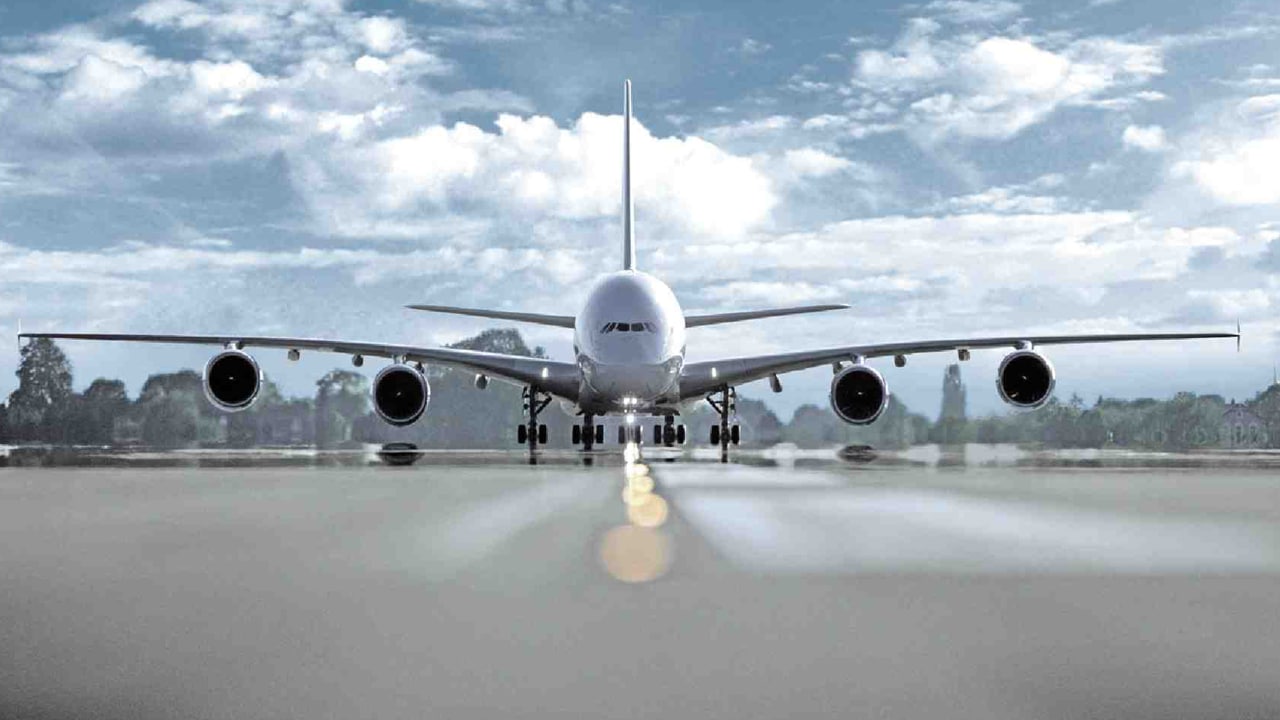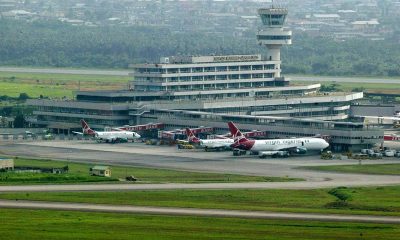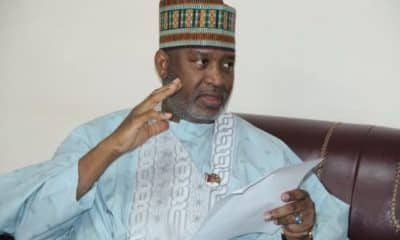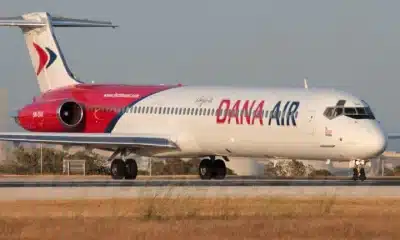Business
Nigeria Loses $200 Million Annually To Foreign Airlines Multiple Points

Aviation analysts have suggested a review of the new Bilateral Air Service Agreement (BASAs) which is indirectly contributing to an annual deficit of $200 million for the country.
Naija News learnt that Nigeria over time has been losing about $200 million (about N91.6 billion at the official exchange rate of N416.34) annually to the foray of foreign carriers into multiple destinations in the country.
The development has been frowned at by aviation analysts who have suggested a quick review to salvage the country from more loss.
Currently, no fewer than 11 foreign carriers, including Qatar Airways, Emirates and Ethiopian Airlines operate additional 60 frequencies to Nigeria weekly, with operations to several cities across the country.
While this is appreciated by passengers because it eliminates their various challenges of connecting flights, it is, however, a disservice to local airline operators as they lose billions of naira annually.
Analysts observed that a new clause in the BASA was not given a careful check by the government before approval.
According to the analysis, the government through the industry regulator, the Nigerian Civil Aviation Authority (NCAA), would have considered the effects such approvals would have on Nigerian airlines and the country’s transportation before allowing such.
Naija News understands that the foreign airlines don’t pay royalties to the government as the new BASAs arrangements they signed with the government eliminated this.
For instance, the Qatari government had in February 2016 signed a new BASA arrangement with the Federal Government, which would enable its carrier, Qatar Airways, from its base in Doha, to increase its weekly frequencies to major cities in Nigeria to five destinations.
The cities are Abuja, Kano, Port Harcourt and Enugu. The airline already flies seven weekly frequencies to the Murtala Muhammed International Airport (MMIA), Lagos. The airline has commenced direct flight services to the aforementioned routes, except Enugu.
Experts noted as, in October 2019, Nigeria’s BASA arrangements with other countries had climbed to 92, while about 30 of the arrangements are active.
Some of the said airlines with extra frequencies into Nigeria include British Airways, Virgin Atlantic Airways, Qatar Airways, Ethiopian Airlines, Africa World Airlines; Turkish Airlines and Asky Airlines.
In this regard, experts in the know have called on the Federal Government to review the existing BASA arrangements with other countries, arguing that while Nigeria opens its airspace wide to foreign airlines, their counterparts come out with obnoxious policies that limit the expansion tendencies of the nation’s carriers in their own countries.
A Nigerian aviation analyst, Grp. Capt John Ojikutu (rtd) while interacting with newsmen on the issue, said that Nigeria was losing about $200 million annually to multiple entries for foreign carriers, while the country’s airlines are suffering.
Ojikutu, however, supported multiple frequencies for the foreign airlines but negated multiple destinations for them.
The aviation expert explained to Daily Independent that any approval above dual designations to foreign airlines exposes the country’s domestic routes and domestic markets to the international airlines.
He said: “I have said it repeatedly that no foreign airlines must be given landing rights to Lagos and Abuja, but to Lagos or Abuja and her airport at alternative geographical location and not more than two.
“However, the airline can fly many times a day to the two airports of its choice. These are great sources of forex revenue earnings for the government from the arising commercial agreements.
“Additional two destinations given to Qatar are not different from what had been given to Ethiopian Airlines, both I am against. In the 1990s, when Egypt Air and Middle East Airline were lifting regular West African regional passengers to and from Lagos, it became a war between them and Nigeria Airways and it was stopped.
“Who will fight the battle now for the domestic airlines when we do not have a national carrier or designated flag carriers?
“Imagine the number of passengers on the extra frequency flights by these airlines and the earnings from their landing and parking? Commercial agreements, if well-managed, can pay well for the loss in reciprocity,” Ojikutu expressed.
On his part, Mr Fortune Idu, another stakeholder in the industry, explained that the government would have considered national business preservation instincts and experience in the global aviation industry before granting multiple designations to foreign carriers.
He added that the government through the industry regulator, the Nigerian Civil Aviation Authority (NCAA), would have also considered the effects such approvals would have on Nigerian airlines and the country’s transportation before allowing such.
He submitted that passenger experience from users’ perspective should be given top priority by the government, stressing that passengers of these airlines would prefer the carriers fly directly to their domains, thereby avoiding flight delays and cancellations by the domestic airlines.
He added: “However on the local airline side, it may be considered a disservice, but the traffic was not created or intended for local airlines. So, you cannot classify it as a loss to them. Finally, during the local airlines’ considerations to increase the minimum airfare base to N50,000 for a trip, did they consult passengers to know how they will feel or survey to assess the impact on customers’ economy?
“So, why will Nigerian passengers worry about Nigerian airlines not partaking in the traffic revenue from Qatar passengers? This issue is simply a passenger’s experience consideration and the economic impact to local airlines is insignificant to this consideration.”
Besides, commenting on the issue and on the plan to resolve it, Mr Allen Onyema, Chairman, Air Peace Airlines, said that the umbrella body of domestic airlines in the country, Airline Operators of Nigeria (AON), was discussing it with the Ministry of Aviation, Naija News reports.
According to him, the airlines would in the next few days hold a meeting with Sen. Hadi Sirika, the Minister of Aviation, to address the situation.
Meanwhile, Sirika has said earlier that the government could not be blamed on the approval of the multiple destinations to international carriers.
According to him, most of the state governments preferred the airlines to fly directly into their states.
He said: “So, it is not as if the Federal Government woke up and gave these multiple designations to foreign carriers. Some of these issues are caused by the state governments who want to fly from their backyard to wherever in the world, not minding the economic impact of such a tendency on the country.
“If you want to give them multiple entry points, let them fly from their countries and go straight to Port Harcourt for instance and then go back to their countries from there, but what we are frowning at is the multiple designations and you allow them to fly from their base and go to different locations in Nigeria.
“A situation whereby they land in Lagos, and from there go to Kano, Port Harcourt and Abuja before going to their countries, that will destroy aviation in the country.”










